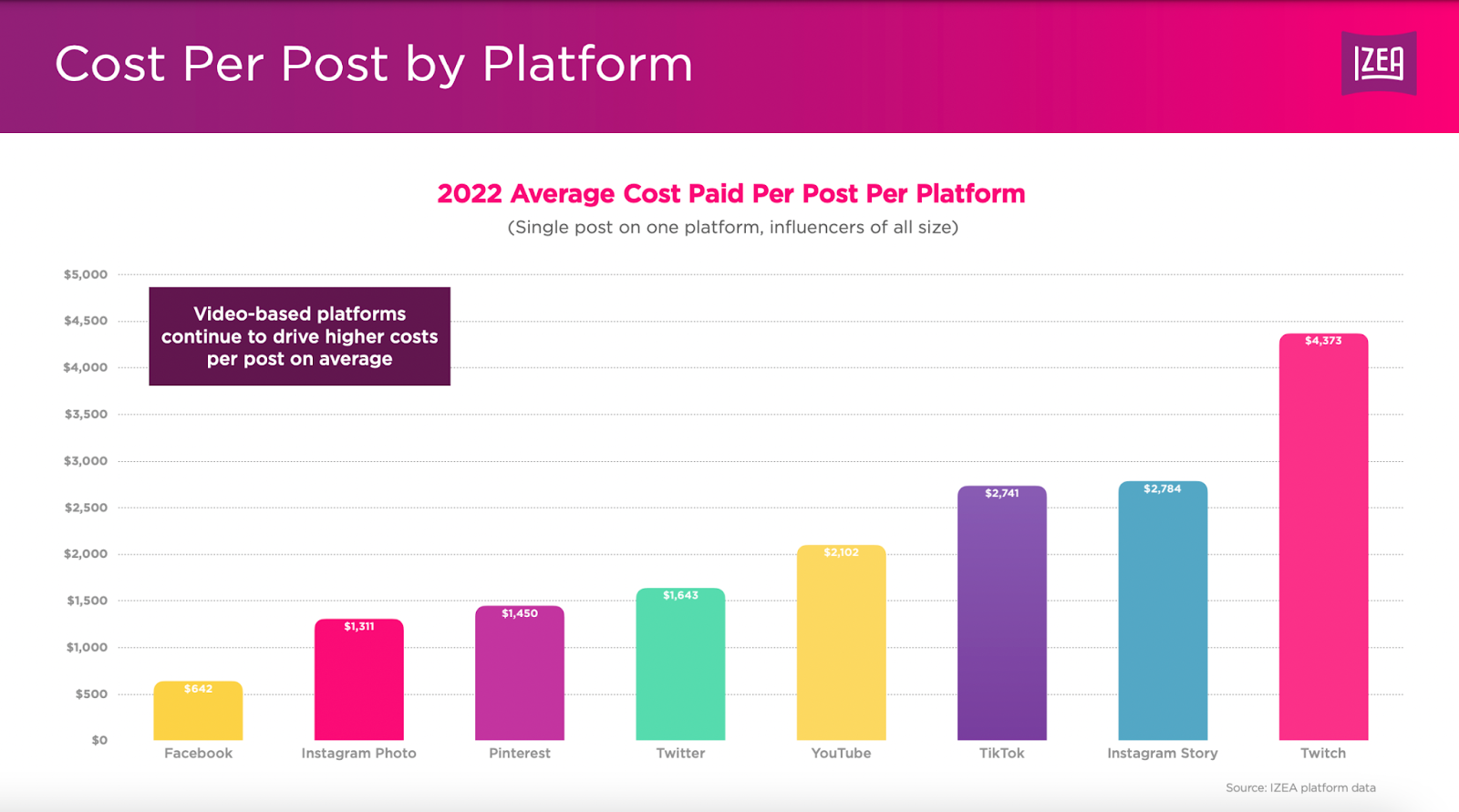Influencer marketing is quickly becoming a mainstay for marketing teams, big and small. If your brand is curious about influencer programs, you’re in the right place. We’ll explore what an influencer program is, weigh the pros and cons, discuss influencer compensation, and offer tips for campaign success.
What is an influencer program?
When brands collaborate with influencers to promote their company or products, it’s considered an influencer program.
Influencers, sometimes called content creators, cultivate their own online or social following and often can “influence” their followers’ purchasing decisions. It’s that influence that brands tap into when they collaborate with influencers.
Influencers create brand-guided content and share it on their social channels, which acts as an authentic endorsement from a friend.
What are the benefits of influencer programs?
Influencer programs give brands an organic way to promote their product, but it offers more benefits, too, including:
Expanded reach
Influencer marketing programs give brands the ability to reach new customers. By strategically selecting influencers to work with, you can find creators who share your target audience and introduce your product to a new group of customers authentically.
Increased brand awareness
Influencer marketing is the modern-day version of word-of-mouth advertising. By empowering influencers, brand awareness increases when followers like, share, and comment on content. Influencer-generated content gets people talking and helps customers recall your brand’s name and products.
The potential for increased sales and leads
Influencers can encourage direct purchases for B2C companies and generate leads for B2B companies. By promoting a specific product and giving followers an incentive, like a promo code for 20% off or a 30-day free trial, brands can reap financial gains.
What are the challenges of influencer programs?
Influencer marketing can be extremely beneficial, but it comes with its challenges, too. Disadvantages include:
Lack of time and resources
Marketing teams are often tasked with a lot of projects. For some brands, the biggest challenge is finding the time and resources to devote to influencer programs. It takes time to research and vet influencers, create campaigns, coordinate content, and track your efforts.
Identifying ROI
Marketing budgets are constantly under scrutiny, which is why every tactic you deploy needs KPIs to measure its success. Influencer marketing is no different, but it can be difficult to measure ROI on your own and even harder to prove to higher-ups.
Finding the right influencers
Influencer marketing is as effective as the influencers you choose, which makes influencer selection vital. Brands that are new to influencer marketing might not know where to find influencers or how to vet them.
An influencer marketing platform like IZEA’s Marketplace can aid the process, but it still requires time and research.
How are influencers compensated in the program?
Compensation varies by brand and program.
In some cases, like campus influencer programs, college influencer programs, or influencer sampling programs, creators might agree to a “post for a product” swap. In other words, an influencer’s compensation is a free product.
However, many influencers expect financial compensation in addition to free products. What’s the average cost per post? As you might expect, it varies based on an influencer’s audience size, experience, and content type. However, our 2023 State of Influencer Earnings gives you some benchmarks to reference.

The chart above gives you the average cost paid per post by platform. A Facebook post, for example, averages $642, while Twitch averages $4,373.
Tips for launching influencer programs
There are many facets to influencer programs. To give each one the best chance to succeed, here are some tips:
Take time to find and vet influencers
Use an influencer marketing platform that not only allows you to search for influencers but also narrows your results with several filters, like follower count, location, and demographics.
Take time to review influencer profiles and explore their social channels. When you reach out, ask for a media kit, which should contain examples of their work.
Follower count is second to engagement
When looking for influencers, you might assume that a bigger audience size is best. However, it’s more important to look at an influencer’s engagement rates than it is to focus on follower count.
Let’s say you’re working to set up fashion influencer programs, and you’ve identified several macro-influencers (with a follower count of 200K-500K) and micro-influencers (with a follower count of 10K-50K) that you’d like to vet. Check their engagement rate first. Small influencers tend to charge less and have higher engagement rates, making them a better investment than larger influencers.
Plan for a long-term relationship
As you work with influencers, you’ll quickly identify those that you’d like to work with long-term. While you can work with creators on one-off campaigns, it’s best to find influencers you can rely on consistently. Not only does this save you from finding and vetting new influencers, but audiences start to associate an influencer with your brand.
Don’t make a judgment call after one campaign
Like most marketing efforts, it can take time to see results when working with influencers. You may need to review your campaign metrics and make adjustments. You might need to try a new channel or a different type of content, for example. Adjust before assuming influencer marketing isn’t a good fit for your brand.
Many marketing teams are adopting influencer programs and building long-term relationships with creators. If you’re ready to launch an influencer program, your first stop should be IZEA’s Marketplace to search for — and filter — influencers in your niche.
Influencers:
Looking to partner with industry-leading brands? Create your free profile today.
Marketers:
The world’s biggest brands trust IZEA. Find which of our influencer marketing software or managed service solutions are right for you.
IZEA MANAGED SERVICES
Strategy and execution from the company that launched the industry.

IZEA MANAGED SERVICES
Strategy and execution from the company that launched the industry.

IZEA MANAGED SERVICES
Strategy and execution from the company that launched the industry.
IZEA MANAGED SERVICES
Strategy and execution from the company that launched the industry.








